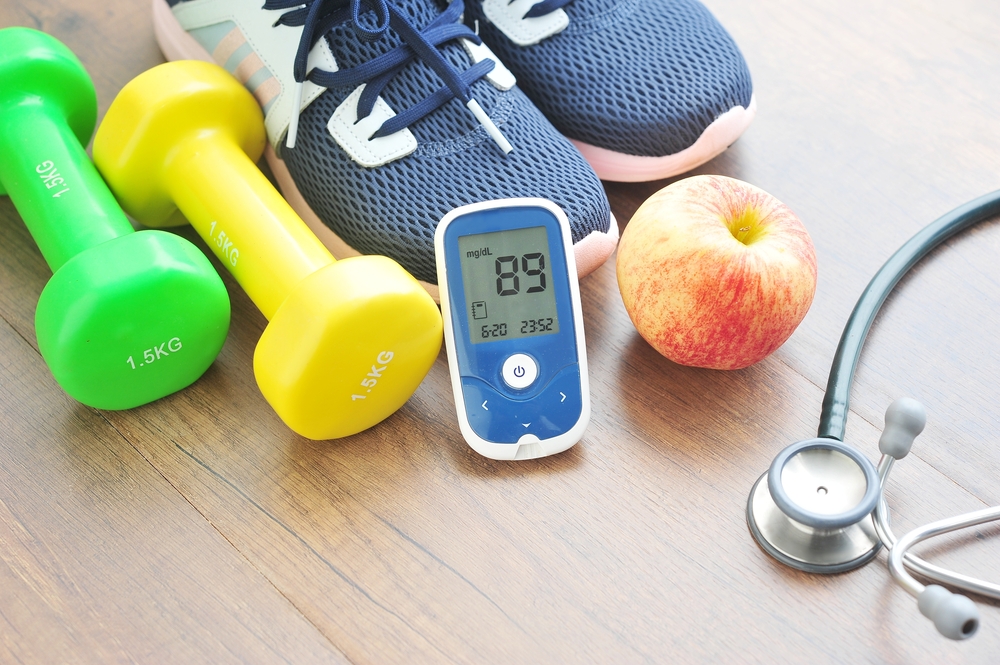Diabetes Education

Diabetes Education
Prairie Ridge Health has been recognized by the American Diabetes Association for Quality Diabetes Self-Management Education* and Support. Our team is dedicated to helping you gain a better understanding of diabetes and its related conditions and be a resource for new medications and technologies that are now available. The focus of the program is to help you take control of your disease by providing you with the skills and support necessary to live a happier, healthier life.
For more information about our Diabetes Education Program, contact Sara Zook, RDN/CD, CDCES, CHWC Registered Dietitian and Diabetes Educator at 920-623-1545 or 888-278-6108.
Major Types of Diabetes
-
Type 1 Diabetes
Type 1 diabetes was previously called insulin-dependent diabetes mellitus (IDDM) or juvenile-onset diabetes. Type 1 diabetes develops when the body's immune system destroys pancreatic beta cells, the only cells in the body that make the hormone insulin that regulates blood glucose. To survive, people with type 1 diabetes must have insulin delivered by injection or a pump. This form of diabetes usually strikes children and young adults, although disease onset can occur at any age. Type 1 diabetes accounts for about 5% to 10% of all diagnosed cases of diabetes. Risk factors for type 1 diabetes may be autoimmune, genetic, or environmental. There is no known way to prevent type 1 diabetes. Several clinical trials for preventing type 1 diabetes are currently in progress or are being planned.
-
Type 2 Diabetes
Type 2 diabetes was previously called non–insulin-dependent diabetes mellitus (NIDDM) or adult-onset diabetes. Type 2 diabetes accounts for about 90% to 95% of all diagnosed cases of diabetes. It usually begins as insulin resistance, a disorder in which the cells do not use insulin properly. As the need for insulin rises, the pancreas gradually loses its ability to produce it. Type 2 diabetes is associated with older age, obesity, family history of diabetes, history of gestational diabetes, impaired glucose metabolism, physical inactivity, and race/ethnicity. African Americans, Hispanic/Latino Americans, American Indians, and some Asian Americans and Native Hawaiians or Other Pacific Islanders are at particularly high risk for type 2 diabetes and its complications. Type 2 diabetes in children and adolescents, although still rare, is being diagnosed more frequently among American Indians, African Americans, Hispanic/Latino Americans, and Asians/Pacific Islanders.
-
Gestational Diabetes
Gestational diabetes is a form of glucose intolerance diagnosed during pregnancy. Gestational diabetes occurs more frequently among African Americans, Hispanic/Latino Americans, and American Indians. It is also more common among obese women and women with a family history of diabetes. During pregnancy, gestational diabetes requires treatment to normalize maternal blood glucose levels to avoid complications in the infant. Immediately after pregnancy, 5% to 10% of women with gestational diabetes are found to have diabetes, usually type 2. Women who have had gestational diabetes have a 40% to 60% chance of developing diabetes in the next 5–10 years.
-
Other Types
Other types of diabetes result from specific genetic conditions (such as maturity-onset diabetes of youth), surgery, medications, infections, pancreatic disease, and other illnesses. Such types of diabetes account for 1% to 5% of all diagnosed cases.
-
Prediabetes
Before developing type 2 diabetes most people almost always have "prediabetes". People who have prediabetes will have blood glucose levels that are higher than normal but not yet high enough to be diagnosed as diabetes. Recent research shows that some long-term damage to the body, especially the heart and circulatory system, may already be occurring during pre-diabetes. Do you have prediabetes or are you at risk for developing diabetes? The good news is that the Diabetes Prevention Program (DPP) study showed that people with pre-diabetes can prevent the development of type 2 diabetes by making lifestyle changes such as increasing physical activity and making healthy changes in their food intake. The DPP also showed that participating in 30 minutes of moderate physical activity a day and a 5-10% reduction in body weight resulted in a 58% reduction in diabetes.
Diabetes Self-Management Education
Our Certified Diabetes Educator will work with you and your family to help create a customized diabetes self-management plan that meets your needs based on your individual needs. You will attend Diabetes Self-Management Education and Medical Nutrition Therapy sessions where you will receive the latest information on:
|
  |
We’d like to encourage you to bring family members and loved ones to participate in our program with you. Family involvement increases success in following your self-management plan.
Want to learn more about how meeting with a diabetes educator can help you improve your blood glucose levels, Hemoglobin A1C and may even help you lose weight?
If you are interested in outpatient diabetes education, a referral from your primary care provider is required. Please contact them to request a referral. Our Patient Financial Counseling Services will assist with a review of your benefits. Diabetes education (DSME/T) can be a covered benefit under several insurance plans, as well as Medicare/Medicaid.
Prairie Ridge Health also offers a Diabetes & Wellness Support Groups on a monthly basis. The group is a free educational program to help improve your health and reduce your risk for developing type 2 diabetes.
Learn More
To find out more about how the Wisconsin Diabetes Advisory Group, along with the Department of Health Services’ Diabetes Prevention and Control Program and other state partners are working to address diabetes prevention and control please visit Wisconsin's Department of Health and Human Services - Prediabetes and Diabetes
Please also visit the American Diabetes Association website to find out more about prediabetes and diabetes prevention and control.
'


